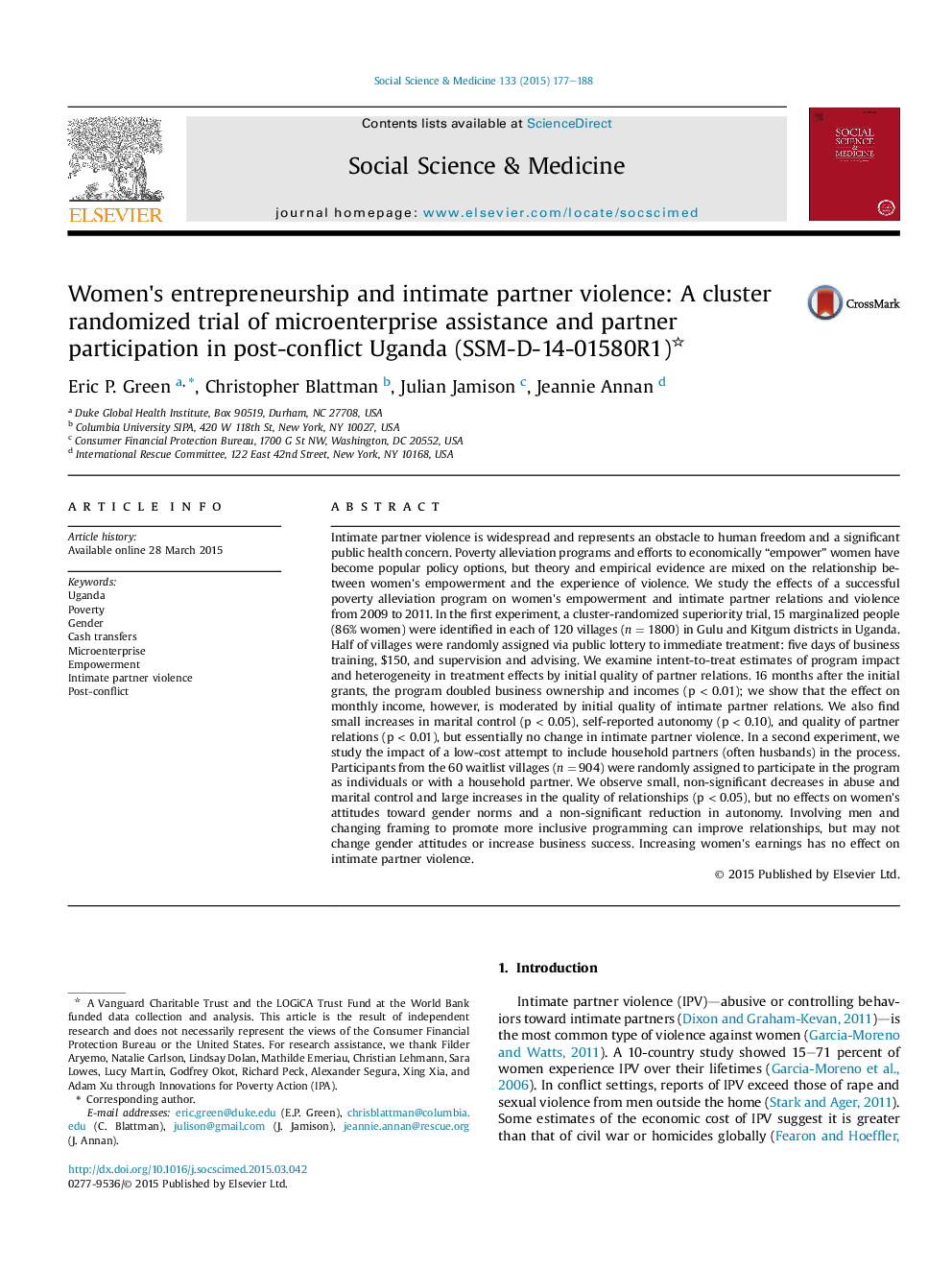| کد مقاله | کد نشریه | سال انتشار | مقاله انگلیسی | نسخه تمام متن |
|---|---|---|---|---|
| 7332843 | 1476035 | 2015 | 12 صفحه PDF | دانلود رایگان |
عنوان انگلیسی مقاله ISI
Women's entrepreneurship and intimate partner violence: A cluster randomized trial of microenterprise assistance and partner participation in post-conflict Uganda (SSM-D-14-01580R1)
دانلود مقاله + سفارش ترجمه
دانلود مقاله ISI انگلیسی
رایگان برای ایرانیان
کلمات کلیدی
موضوعات مرتبط
علوم پزشکی و سلامت
پزشکی و دندانپزشکی
سیاست های بهداشت و سلامت عمومی
پیش نمایش صفحه اول مقاله

چکیده انگلیسی
Intimate partner violence is widespread and represents an obstacle to human freedom and a significant public health concern. Poverty alleviation programs and efforts to economically “empower” women have become popular policy options, but theory and empirical evidence are mixed on the relationship between women's empowerment and the experience of violence. We study the effects of a successful poverty alleviation program on women's empowerment and intimate partner relations and violence from 2009 to 2011. In the first experiment, a cluster-randomized superiority trial, 15 marginalized people (86% women) were identified in each of 120 villages (n = 1800) in Gulu and Kitgum districts in Uganda. Half of villages were randomly assigned via public lottery to immediate treatment: five days of business training, $150, and supervision and advising. We examine intent-to-treat estimates of program impact and heterogeneity in treatment effects by initial quality of partner relations. 16 months after the initial grants, the program doubled business ownership and incomes (p < 0.01); we show that the effect on monthly income, however, is moderated by initial quality of intimate partner relations. We also find small increases in marital control (p < 0.05), self-reported autonomy (p < 0.10), and quality of partner relations (p < 0.01), but essentially no change in intimate partner violence. In a second experiment, we study the impact of a low-cost attempt to include household partners (often husbands) in the process. Participants from the 60 waitlist villages (n = 904) were randomly assigned to participate in the program as individuals or with a household partner. We observe small, non-significant decreases in abuse and marital control and large increases in the quality of relationships (p < 0.05), but no effects on women's attitudes toward gender norms and a non-significant reduction in autonomy. Involving men and changing framing to promote more inclusive programming can improve relationships, but may not change gender attitudes or increase business success. Increasing women's earnings has no effect on intimate partner violence.
ناشر
Database: Elsevier - ScienceDirect (ساینس دایرکت)
Journal: Social Science & Medicine - Volume 133, May 2015, Pages 177-188
Journal: Social Science & Medicine - Volume 133, May 2015, Pages 177-188
نویسندگان
Eric P. Green, Christopher Blattman, Julian Jamison, Jeannie Annan,